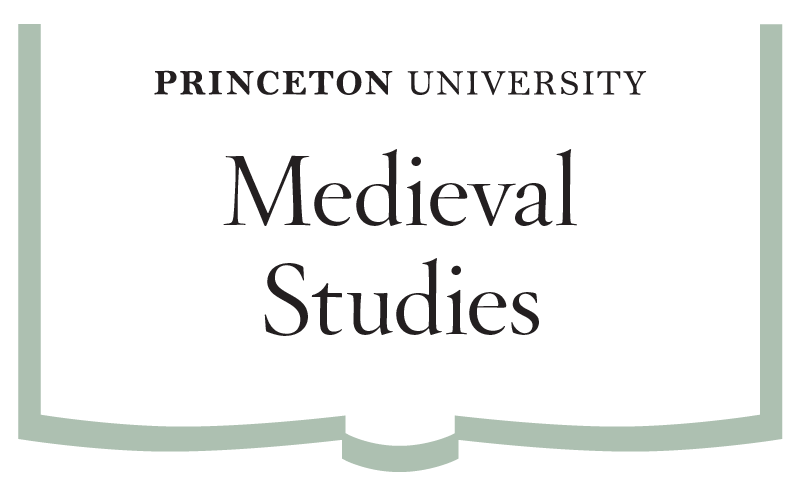As part of the certificate program, students write their departmental senior thesis or an additional paper on a medieval topic.
Class of 2025
Ignacio Arias Philippi
History
Advisor: Helmut Reimitz
Thesis:
The Emperor’s New Roots: Maximilian I, Ladislaus Sunthaym, and the Invention of Ancestors
Helena Drake
Comparative Literature
Advisor: Daniel Heller-Roazen
Thesis:
Seeing Double: Fin’amor and Problems of Identity in Medieval French Literature
Clay Glovier
History
Advisor: Helmut Reimitz
Thesis:
A Tribute to Syria’s Ancient Past: Portrayals of Zenobia Throughout Time
Xander Jenkin
Astrophysical Sciences
Medieval Studies Independent Paper:
Lighter and Darker Cosmos in Late Antique to Early Medieval Christian Art
Izabela Konopka
Politics
Medieval Studies Independent Paper:
Uplifting Men by using the Presence of Women: Gender Dynamics in Libro De Ajedrez, Dados y Tablas
Brennan McClelland
Politics
Advisor: Gregory Conti
Thesis:
Peter of Auvergne and Democracy: An Analysis and Translation of Sections from the Scriptum super III-VIII Libros Politicorum
Abigail Rabieh
History
Advisor: Anthony Grafton
Thesis:
The Beginning of History at the End of the Universal Church: Etienne Pasquier and the Politics of Gallicanism, 1561-1602
Elitsa Sklar
Religion
Advisor: Moulie Vidas
Thesis:
Closing the Gap between the Ideal and the Actual: Elegies and Prayer, A Geniza Study
John Slaughter
Philosophy
Medieval Studies Independent Paper:
Enclosed in Contradiction: The Hortus Conclusus in Princeton University’s Illuminated Manuscripts
Matias Vincent
History
Advisor: Helmut Reimitz
Thesis:
Administrating the Birth of a Nation: The Reconquista process and military pressures in the construction of a Portuguese political identity
Daniel Viorica
Comparative Literature
Advisor: Daniel Heller-Roazen
Thesis: Lost Valley: Fragment and the Novel”
Andrew Zucker
Molecular Biology
Medieval Studies Independent Paper:
All Praise Alexander: the Deification of Alexander and Hellenism
Class of 2024
Fahim Azaz
Near Eastern Studies
Advisor: Marina Rustow
Thesis:
Scenes of Liminality: Jewish Identity in Medieval Egypt
Marta Baziuk
Classics
Advisor: David Jenkins
Thesis:
Michael Psellos On the Platonic Forms: Advancing Plato in the Face of Aristotle
Paul Fletcher
History
Advisor: Jack Tannous
Thesis:
Walking in Step: The Personal Pilgrim’s Guide to the Camino de Santiago
Sebastian Hayden
Philosophy
Advisor: Hendrik Lorenz
Thesis:
Are Virtue and Vice Up to Us?: A Study of Nicomachean Ethics III.5
Ellie Marquardt
History
Advisor: Helmut Reimitz
Thesis:
Examining the Living Manuscript: Evolution and Ethnic Identity in Alfredian England
Shane Patrick
Near Eastern Studies
Advisor: Michael Cooki
Thesis:
A Law of the Past and of the Future: The Mukhtasar al-Shari’a of ‘Abdallah Qara’ali’
Claire Schultz
English
Medieval Studies Independent Paper:
’Nothyng for Correccioun of Synne’: The Pardoner as Societal Threat
Matthew Wilson
Politics
Medieval Studies Independent Paper:
Civil Liberties and the Limits of Coercion in ‘Enjoining Good and Forbidding Evil’
Class of 2023
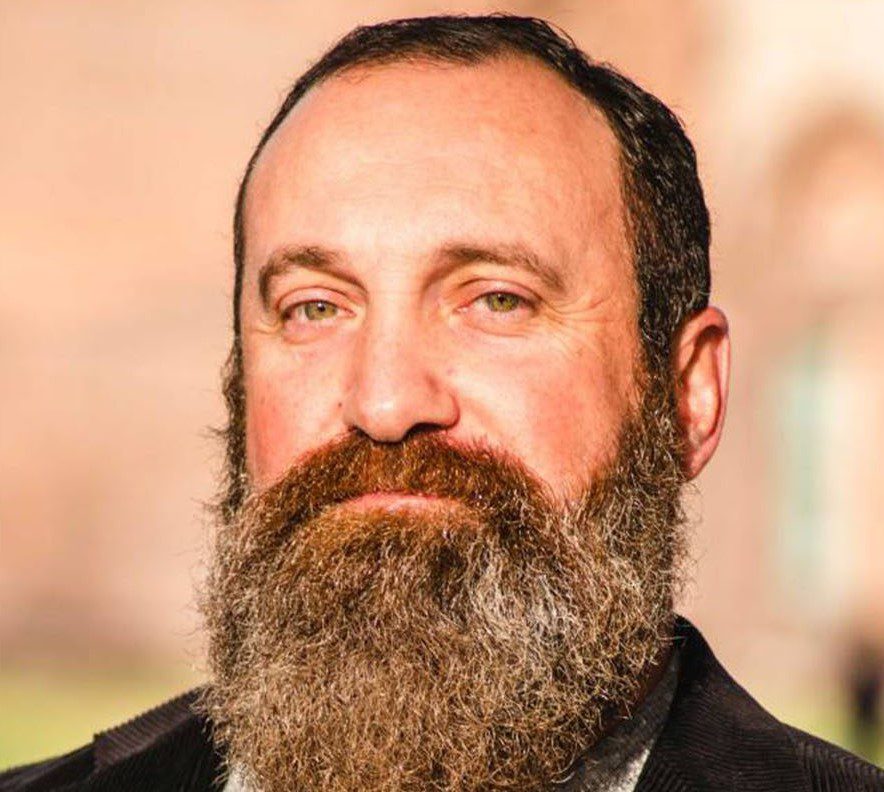
Shaun Cason
History
Advisor: Helmut Reimitz
Thesis:
The Rebellion of Ali B. Muhammad: Re-examining the Zanj Revolt and Its Place in Abbasid History

William (Rett) Hillman
Classics
Advisor: Emmanuel C. Bourbouhakis
Thesis:
De Laudibus Platonis: Editio Princeps with Introduction, Translation, and Commentary
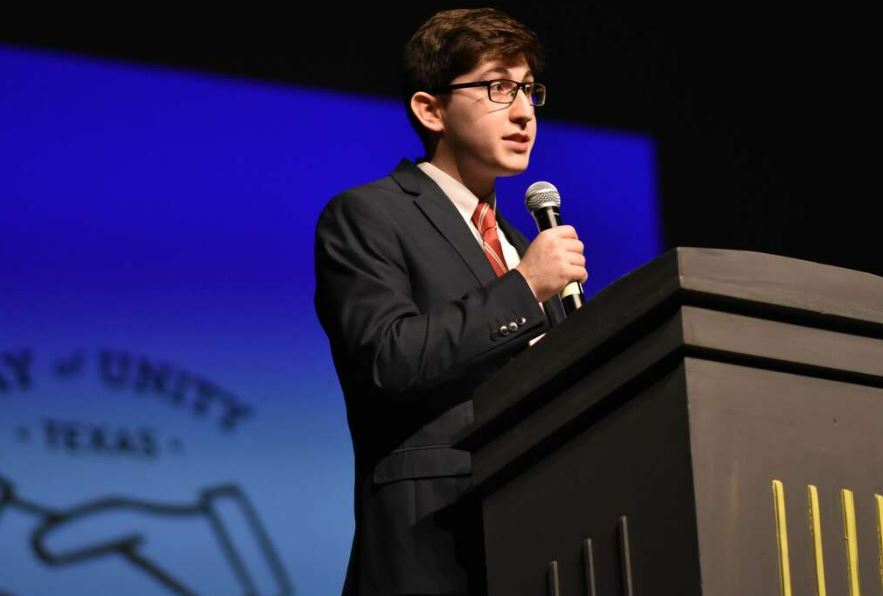
Adam Hoffman
Politics
Advisor: Leora Batnitzky
Thesis:
The Kehillah and the Corporation: A Redefining of Religion in First Amendment Jurisprudence
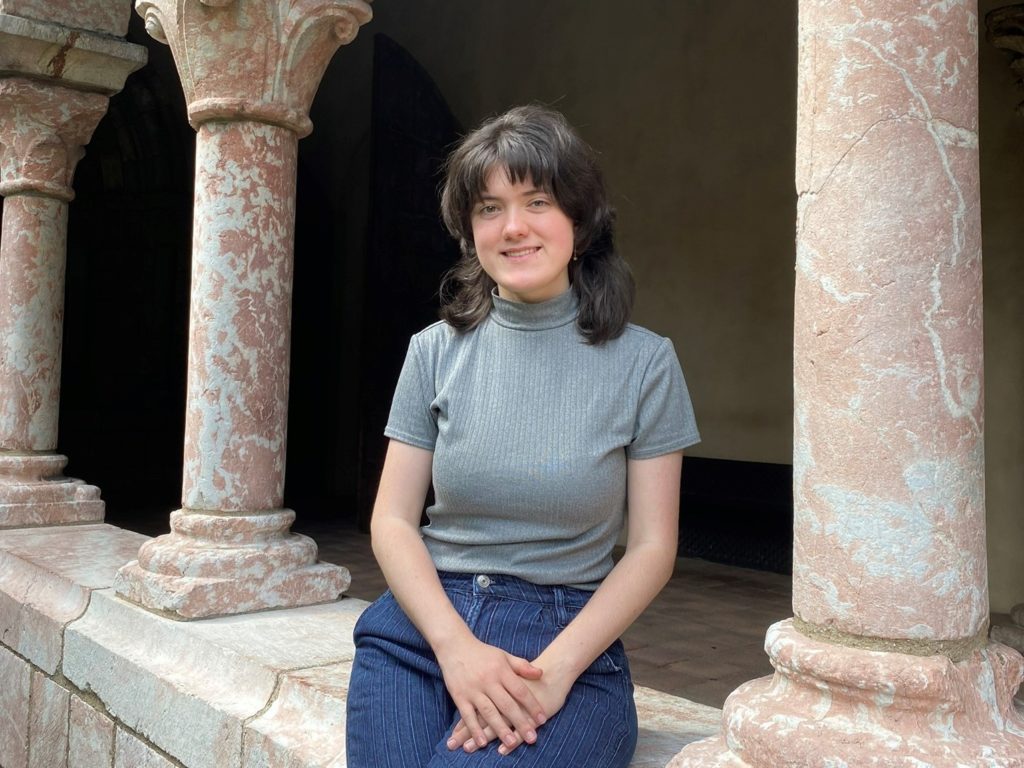
Mary Alice Jouve
History
Advisor: Jack B. Tannous
Thesis:
‘Ayons de la mort souvenir:’ The Belles Heures Office of the Dead Illumination as Jean de Berry’s Funeral Portrait
AJ Lonski
Neuroscience
Advisor: Sarah M. Anderson
Thesis:
“Black box“: Animating Texts in the Old English Period

Andrew Matos
English
Advisor: Susan Jean Wolfson
Thesis:
The Idle Singer of an Empty Day: The Fantastic and the Material in William Morris’s The Earthly Paradise
Micah Newberger
Comparative Literature
Advisor: Danielle Heller-Roazen and Moulie Vidas
Thesis:
A Great Voice: On Language from Sinai
Juliana Wojtenko
History
Advisor: William C. Jordan
Thesis:
Heroes of Russia’s Musical Past: The Myth of Mikhail Glinka, Nationalism, and Russo-Centrism in the Soviet Union
Class of 2022

Noah Altshuler
English
Advisor: Rhodri Lewis
Thesis:
Godric-Speak: Historical Fiction, Historical Linguistics, and Artificial Language in Frederick Buechner’s Godric (1980)

Edward Bless
History
Advisor: William Chester Jordan
Thesis:
“Of His Own Free Will”: Vengeance, Violence, And The Development Of Justice In Fourteenth-Century France
Noelia Carbajal
Classics
Advisor: Janet Kay
Thesis:
On the Meaning of “Churches”: An Assessment of Archaeological Interpretations of Early Christian Churches

Ilia Calogero Curto Pelle
Classics
Advisor: Daniel Mairhofer
Thesis:
The Transformation of Balkan Society in the 7th c.

Lucy Dever
English
Advisor: Sarah M. Anderson
Thesis:
Cryptologus: Symbolism in Monster Media from Medieval Bestiaries to Contemporary Cryptid Culture
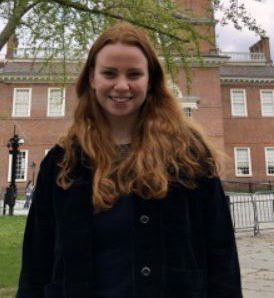
Madeleine Gaynor
History
Advisor: William Chester Jordan
Thesis:
The Suffering Saint’s Wife: Sanctity and Power in the Life of Queen Marguerite of Provence
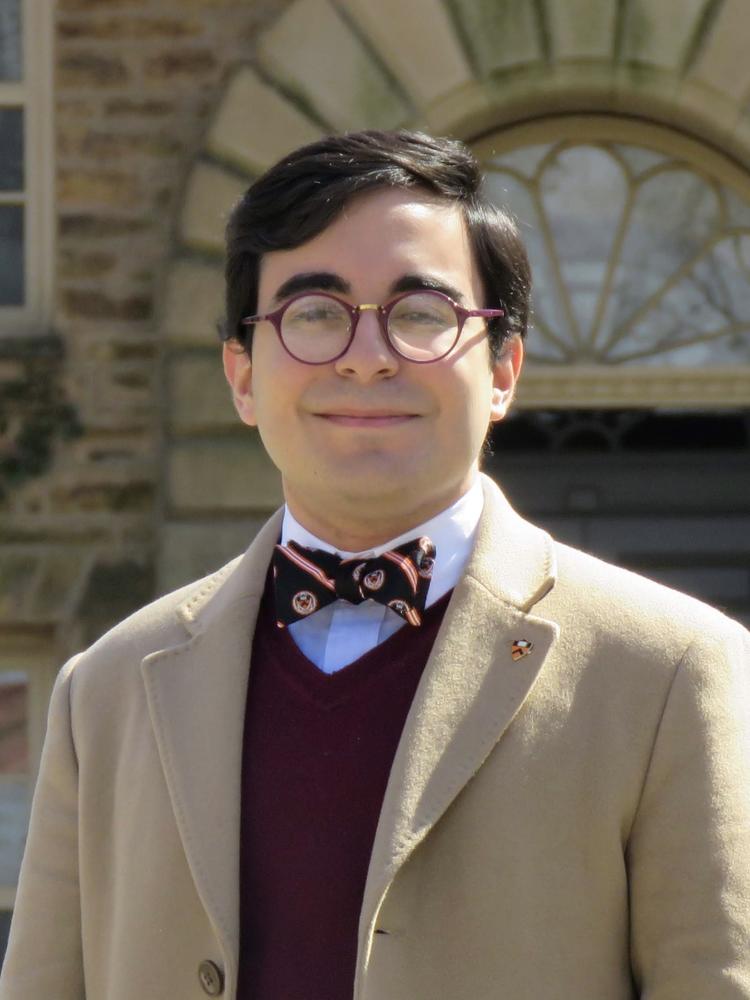
Juan José López Haddad
History
Advisor: William Chester Jordan
Thesis:
The Scholar’s Path: Paris Through the Eyes of John of Garland (1195 – 1272)
Charlotte Root
Art and Archaeology
Advisor: Janet Kay
Thesis:
Faith in Flux: Romano-British Religion in Archaeology and Epigraphy
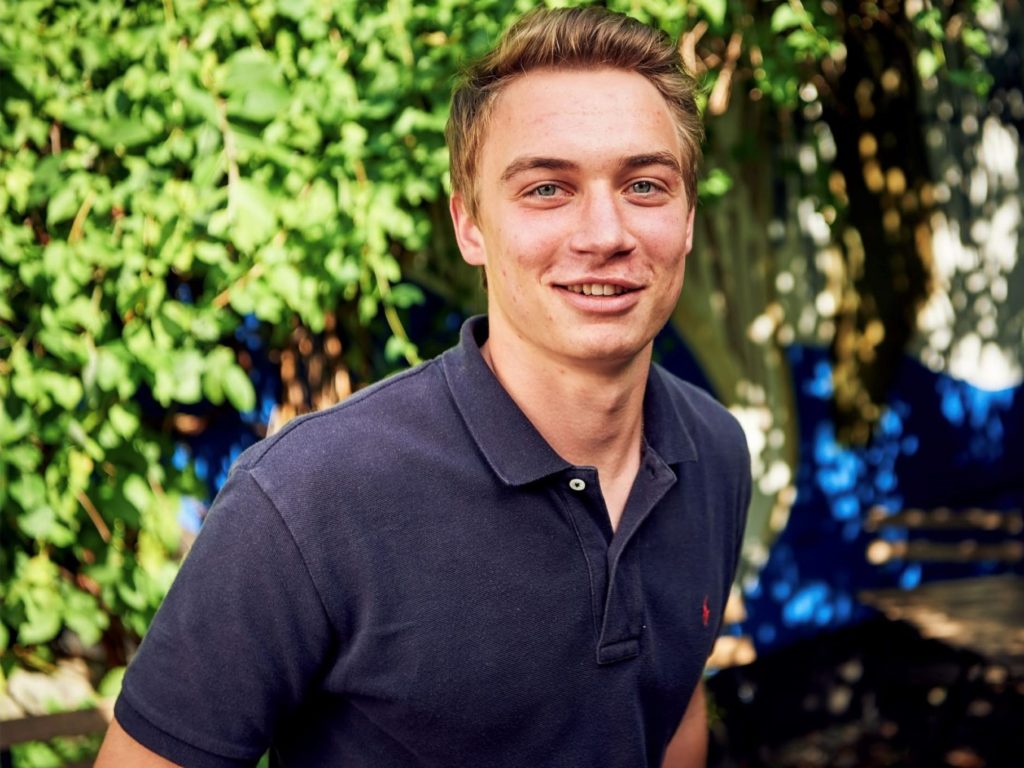
Philip Sobocinski
History
Advisor: Jack Tannous
Thesis:
Pusey and Newman: Friendship and Faith through Patristics and Purgatory
Class of 2021
Hassan Ahmad
Politics
Advisor: Gregory Conti
Thesis:
An Inquiry into the Nature of Municipal Government: Its Corruption, History, and Future Restoration

Elizabeth Bailey
History
Advisor: Randall Pippenger
Thesis:
“A Dragon with Nine Heads”: Muslims, Jews, and Eastern Christians in the Thirteenth-Century Kingdom of Jerusalem
Caroline Buck
History
Advisor: Jack Tannous
Thesis:
Temporary Crusaders: Great War Crusading Rhetoric in the United Kingdom

Peter Foster
History
Advisor: David Bell
Thesis:
Lettres de Noblesse: The Financial and Political Ascent of the House of
Orléans, 1660-1793
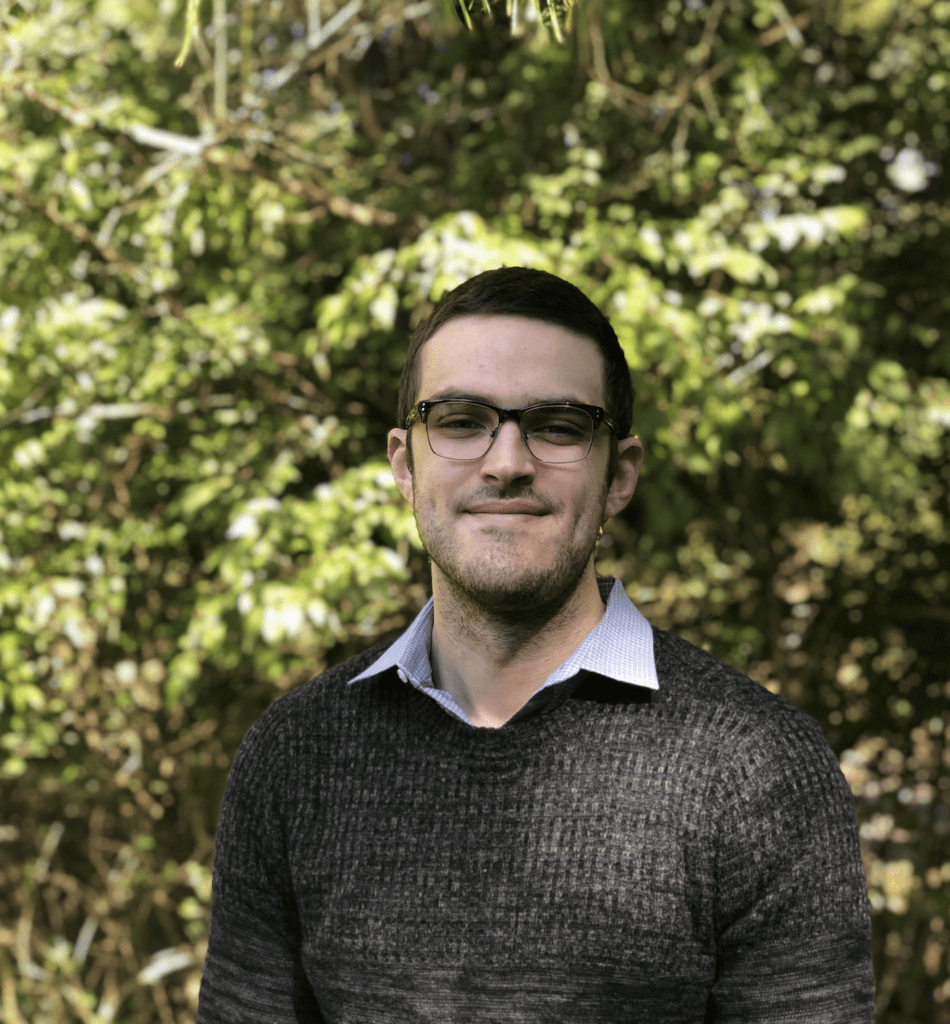
Ethan Glattfelder
French and Italian
Advisor: Simone Marchesi
Thesis:
Making the Monster: Bodies of Work in Old French Romance
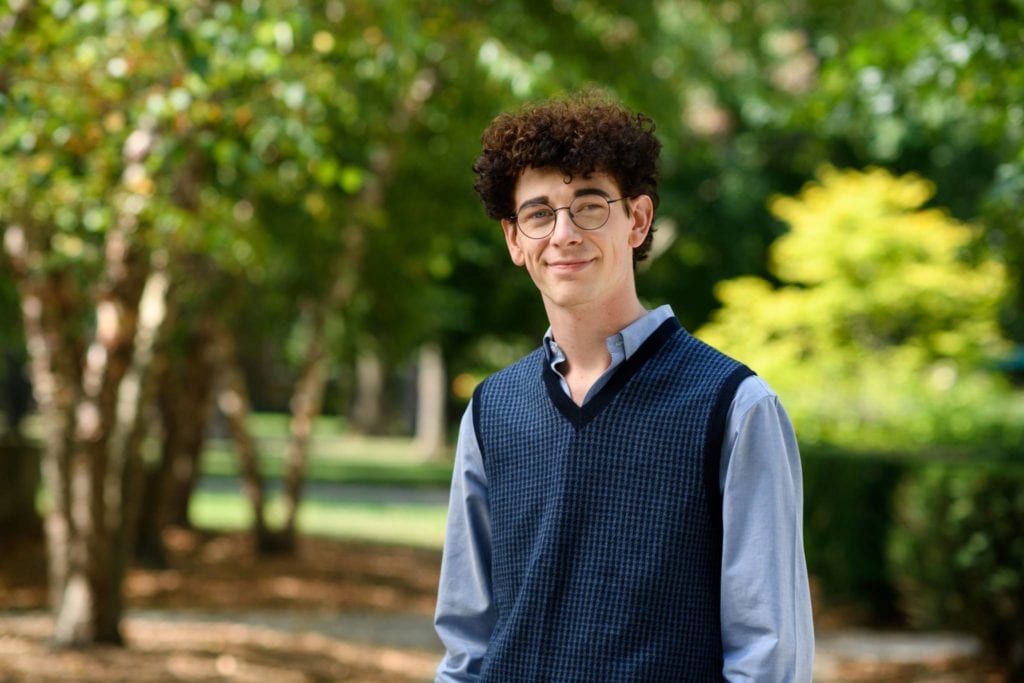
Avner Goldstein
Classics
Advisor: Janet Kay
Thesis:
Voices of the Sea: History and Seascape in Anglo-Saxon England

Ismary Jimenez
History
Advisor: Jack Tannous
Thesis:
Dynamic Laity: Non-Elite Christians and the Establishment of Doctrine in Late Antiquity
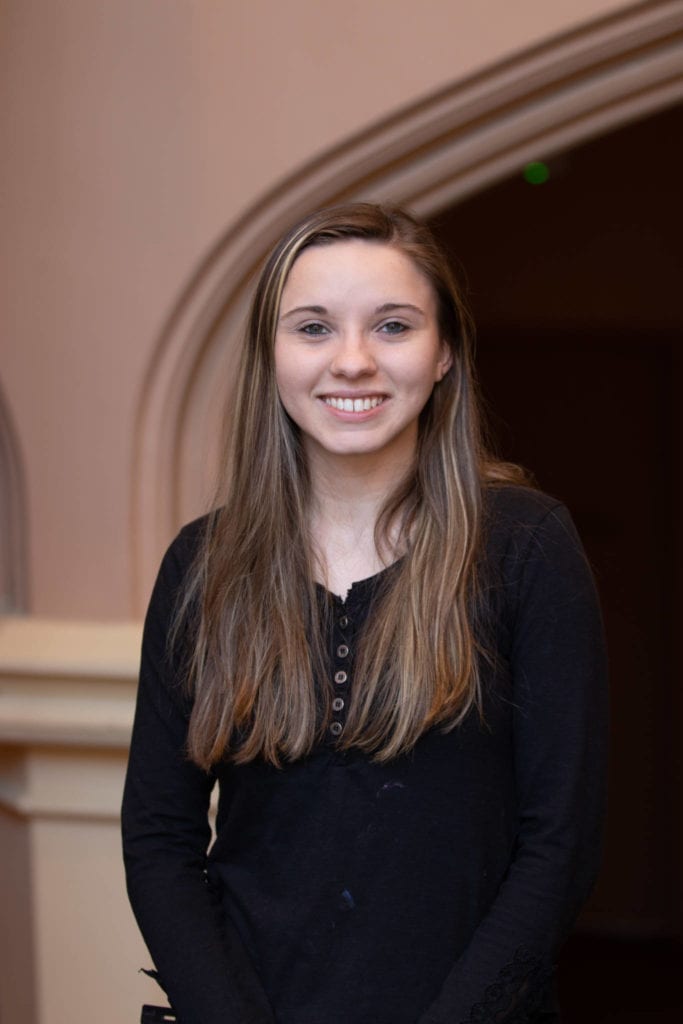
Claire McCarriher
Classics
Advisor: Andrew Feldherr
Thesis:
The Luxurious and the Liminal in Cicero’s Speeches: an analysis of the use of the banquet as insult
Megan McDonagh
History
Advisor: William Chester Jordan
Thesis:
Arma Crucemque Cano: Crusades through the lens of John of Garland’s De triumphis ecclesie

Anne Newman
History
Advisor: Randall Pippenger
Thesis:
Of Vines and Flowers: The Cistercian Order and the Cultivation of Identity in Medieval Meissen, Lusatia, and Silesia
Caroline Ortiz
Classics
Advisor: Katerina Stergiopoulou
Thesis:
The Ghosts of Plato: Virginia Woolf’s Integration of Plato’s Poetics in her Post-War Novels
Class of 2020
All seniors writing a thesis in medieval history meet regularly at lunch to enjoy their company, exchange ideas, and work on their ongoing projects. We also organize full day workshops to present and discuss their senior theses. Our eight concentrators met regularly with me, Helmut Reimitz, Director of the Program in Medieval Studies, to discuss their ongoing research — from the first ideas, reports about trips to archives, discussion of practical and methodological challenges, writing blocks or the opposite, until the completion we shared anxious and exciting moments in the composition of the theses. It is hard to write a book, and it was hard to finish them under the circumstances of COVID 19. But, everyone succeeded in finishing a truly impressive study on the highest scholarly standards. What I found particularly exciting was the enormous range of themes and research foci — from late Antique patristic thought to high medieval religions and societies in France, Italy, and Spain, to the medieval layers of the British parliamentary system, to 20th century art (and its medieval inspiration), and 21st century approaches to the teaching of Latin (and its emancipation from medieval practices). My sincere congratulations to all of our certificate students on finishing their certificate and a truly exciting thesis.
Helmut Reimitz
Director of Medieval Studies
Professor of History
Please see below for photos and thesis abstracts for each Class of 2020 Medieval Studies certificate student.
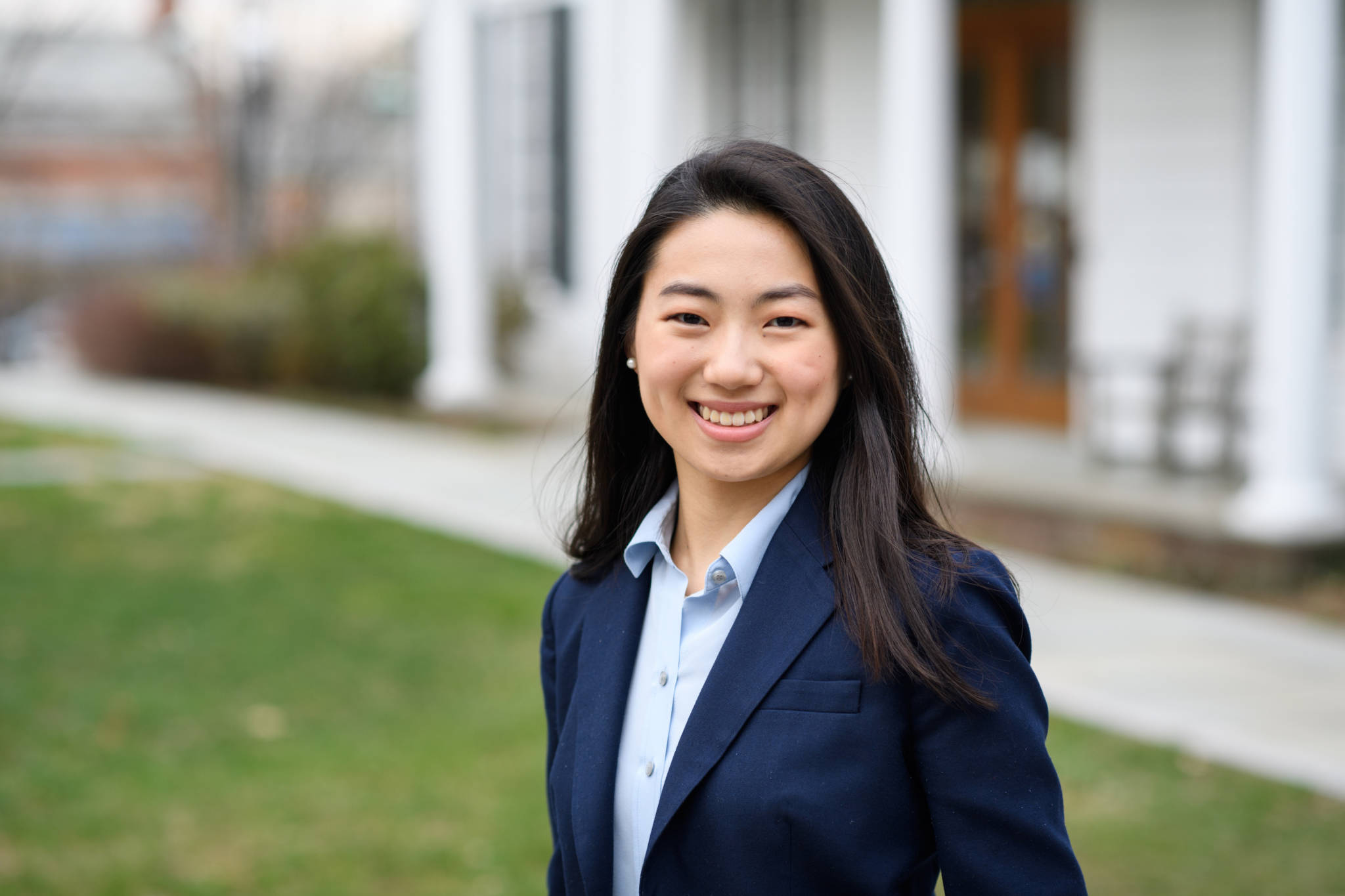
Janice Cheon
German
Advisor: Professor Devin Fore
‘Against the Malaise of Time:’ Embodied Fragmentation and Temporalities of the Dada Creaturely
In this thesis, I explore the work of the German Dadaists primarily through the lens of the creaturely, a figure of fragmentation most notably explored by German-Jewish philosopher Walter Benjamin in his 1925 Habilitationsschrift on the baroque mourning play. I argue that the temporality of the creaturely is a paradoxical convergence of creation and destruction, and that creaturely temporality was therefore able to connect two moments or epochs that are historically non-continuous and often seemingly incompatible. The work of the Berlin Dadaists relied on a similar impulse of cutting through and exposing the temporal vulnerability of the creaturely as a way of reconceptualizing the modern body’s relationship with a fraught and fragmented post-war history. Following a similar ‘creaturely’ impulse in my methodology, I rely on the paradigm of deliberate anachronism to propose a new approach to montage as an act of spoliation, drawing heavily from art historical scholarship on early Christian spoliation and Medieval relics and reliquaries to ultimately reimagine the practice of Dada architectural and visual montage as a creation of a shared space for multiple simultaneous temporalities, past and present.
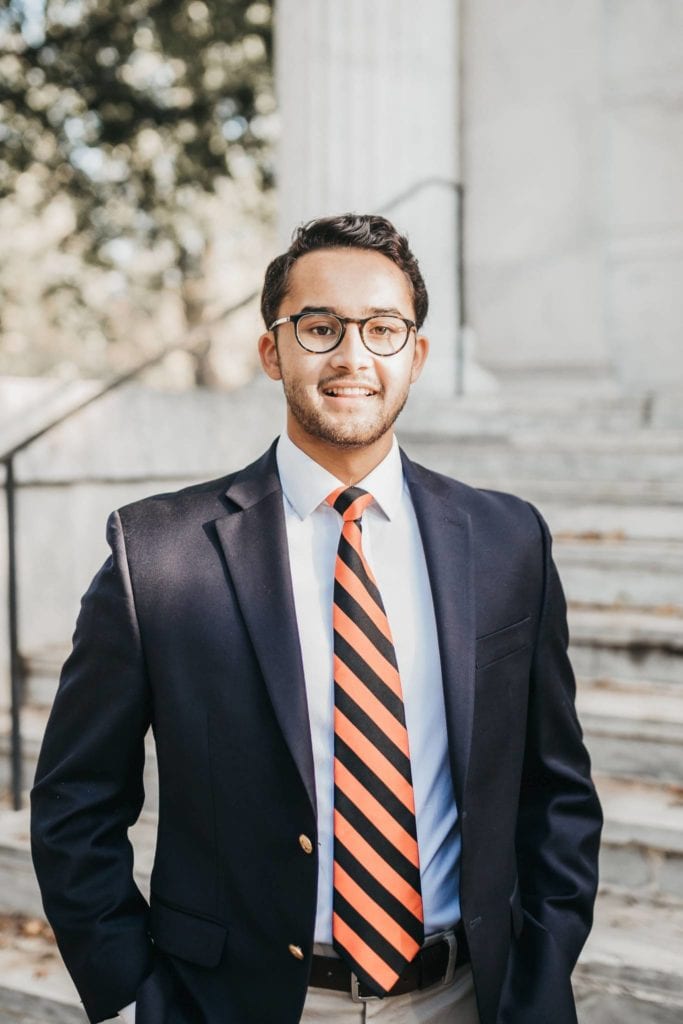
Nathaniel Gadiano
French and Italian
Advisor: Professor Simone Marchesi
Francis Clarified: A Reading of Bonaventure’s Legenda Maior in the Light of Clare of Assisi
This thesis analyzes the interior life of St. Francis of Assisi. Basing its analysis of Francis on Bonaventure’s biography of the saint, it takes Clare of Assisi’s life in the cloisters as a hermeneutical guide to Francis’s life in the world. Ultimately, the goal of the thesis is to clarify Francis. That is, the thesis hopes to show that Francis may be seen as another Clare. In the end, it argues that just as the cloister of Clare became an outward sign that invites those in the world to enter into the mystery of God’s love, so too did Francis’ stigmatized body become a sign that points those in the world to the glory of the eschaton, in which the blessed will enjoy union with their loving Creator.

Chris Howard
Classics
Advisor: Professor Daniela Mairhofer
Sero Te Amavi: North African Church Controversies and the
Maturation of Augustine’s Theology of Love
My thesis addressed a formative early Church controversy in late Antique northern Africa (the Donatist controversy) by examining the theologies of St. Augustine and St. Cyprian, his predecessor. I reached two main conclusions. The first is that Augustine’s harmonization of diverse viewpoints concerning the nature of the Church (especially those of Cyprian) is consistent with the regula dilectionis of his interpretive theory. The second is that his own thinking about this same concept of dilectio is subtly shaped by and matured through his engagement with the Donatists. In sum, Augustine’s polemical work in the controversy both influences and is influenced by his theological understanding of love (in its various forms).

Cecilia Hsu
Spanish and Portuguese
Advisor: Professor Marina Brownlee
Marian Miracles in Pre-Inquisition Castile: An Annotated Translation of Codex 1 from the Archive of the Monastery of Guadalupe
Codex 1, of the Monastery of Guadalupe in Extremadura, contains miracles reported by pilgrims who visited this monastery between the years of 1412 and 1503. I translated into English the monastery’s origin story at the beginning of the codex, along with annotations to explain the purposeful insertion of Guadalupe into national and church history, as well as the first sixteen of these miracles, spanning the years 1412 to 1424, in order to document popular devotion to the Virgin of Guadalupe during the beginning of an era of weak Castilian kings. This translation is preceded by a brief explanation of my translation theory and an introduction to the symbolism of the monastery and its Virgin. Following the translation, I place these miracles in the context of Castilian politics, propose that the codex was composed immediately after Isabel I’s reign in the first decade of the sixteenth century, and discuss these miracles’ implications on society, religion, and popular perceptions of miracles in fifteenth-century Castile. The appendices include maps that show the spread of miracle locations across the Iberian peninsula and in coastal towns across Europe.
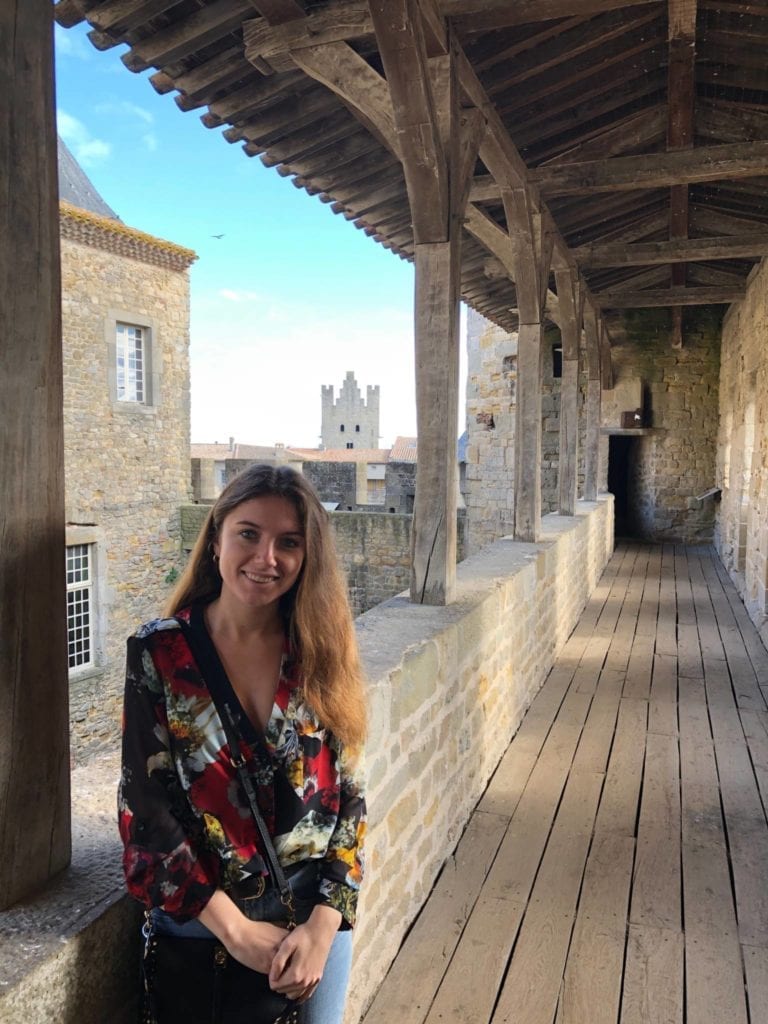
Elizabeth Lilly
History
Advisor: Professor William Chester Jordan
When Fine Words Fail: War, Peace, and the Administration of the Negotium pacis et fidei in Languedoc, 1208-1249
Elizabeth’s thesis studies the Albigensian Crusade and its aftermath. It attributes the success of the Dominican inquisition by 1249 to the bailes, officers of the count of Toulouse who were charged in various postwar documents to hunt down remaining cells of heresy. Immediately following the conclusion of the crusade, the bailes, like many of their countrymen, were deeply nativistic and hostile to the imposition of foreign customs and tribunals in Languedoc. A series of high political crises in the 1240s, the thesis argues, finally forced the count of Toulouse to mobilize his bailes toward the extirpation of heresy, which he had long promised to the pope and to the king of France. Throughout, the thesis considers the ideological matrix which justified the crusade and the inquisitions, interrogating the twin concepts of pax and fides in various contexts. It also draws from archival research Elizabeth did at the Bibliothèque nationale de France, which was made possible by the generous support of the Program in Medieval Studies via the Uitti Fund for undergraduate research.

Andre Mendoza
Classics
Advisor: Professor Joshua Katz
Viva Latinitas: An Essay on Language and Learning in the Classics
Teaching ancient languages is a problem with no obvious solution–– it is a problem because we no longer have access to native speakers as teachers, or even as a standard of pronunciation, and because our ultimate goal is reading, not conversational fluency. The prevailing solution for the past two centuries has been the Grammar-Translation Method which, though incredibly convenient, is deeply flawed. In Viva Latinitas, I explore these flaws and propose speaking dead languages, according to the model of the Direct Method as described and practiced by the co-founder of the famous Loeb Library series, W.H.D. Rouse, as a method which corrects the flaws of G-T and goes further still. My analysis involves the metaphysics of language, philosophy of education, historical and social linguistics, ethics and psychology, Princeton’s educational history, memoirs and humorous (I’m told) vignettes, dialogues à la Plato (but in Latin), and a little Aristotle, Dante, and Aquinas–– just to keep things interesting. Above all, Viva Latinitas is a personal essay about the poetry, music, logic, and life of the classical languages.
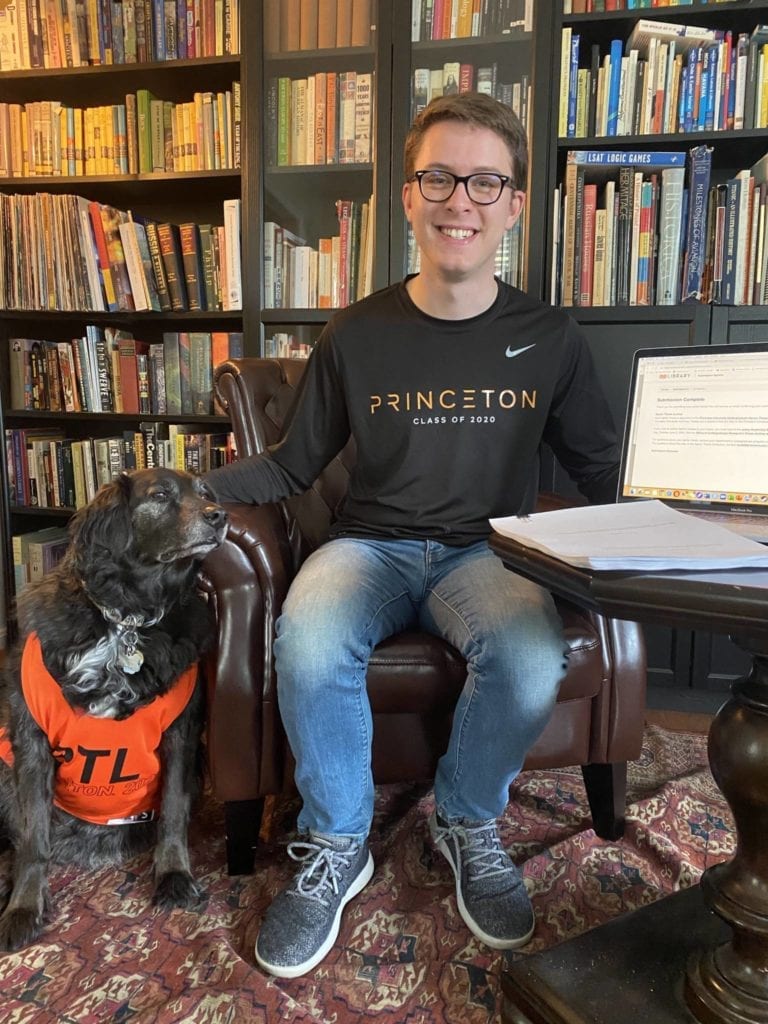
Benjamin Press
History
Advisor: Professor William Chester Jordan
“The Most Grieving Grievance That Ever Was”: Billeting and the Democratization of England’s Governance Crisis, 1625-1628
This thesis revolves around the collapse of governance in the early years of Charles I’s reign, particularly as it relates to the material, legal, and constitutional problems of billeting soldiers in private homes. In particular, the thesis argues that billeting soldiers in a deliberately retributive fashion democratized the crisis of governance which Charles exacerbated by pursuing overly ambitious foreign policy goals. Though not strictly medieval in a temporal sense, the problems which this thesis addresses stemmed from an inherited system of norms, institutions, and fiscal structures which were largely developed in the High Medieval period. Its central theme is how medieval ideas– of “rights of liberty,” of royal prerogative, and of the relationship between law and necessity– could be manipulated and reshaped in early modern disputes over good governance and kingship.

Jeff Zymeri
Classics
Advisor: Harriet Flower
St. Augustine and the Roman Institution of Slavery: A Phenomenological Look at a Project of Legitimation and Reform
In this thesis, I examine Saint Augustine’s views on the Roman institution of slavery, arguing that his project is one of legitimation and reform. I employ an experiential lens to do this, making heavy use of the Confessions. I also take a close look at how Augustine comes to a new way of construing identity and I connect that to his views on slavery.
